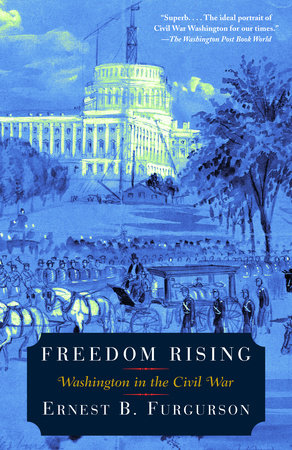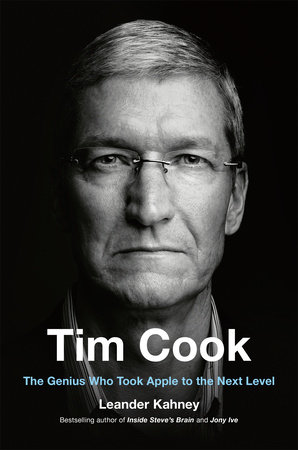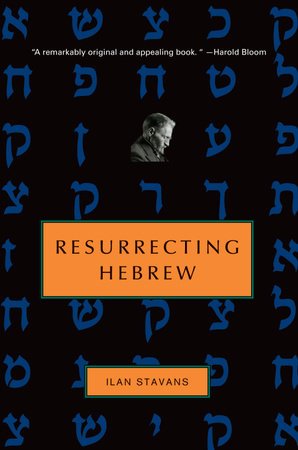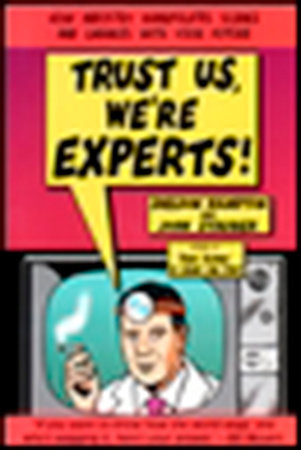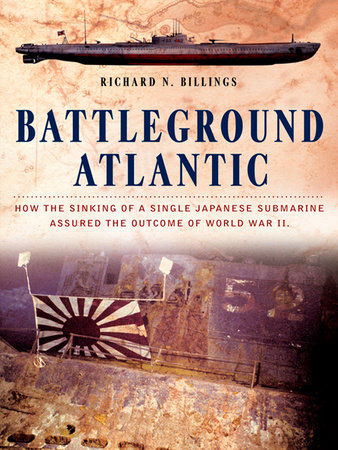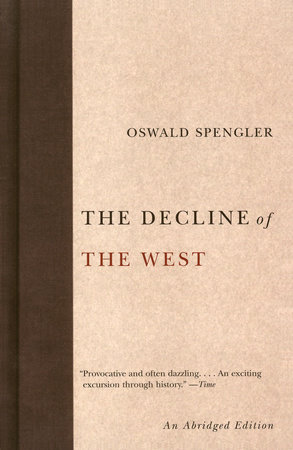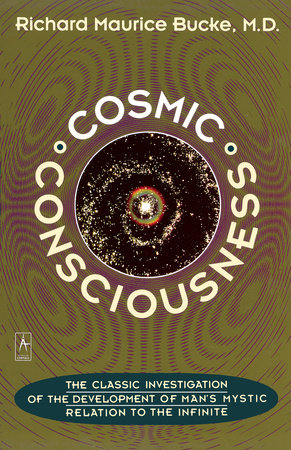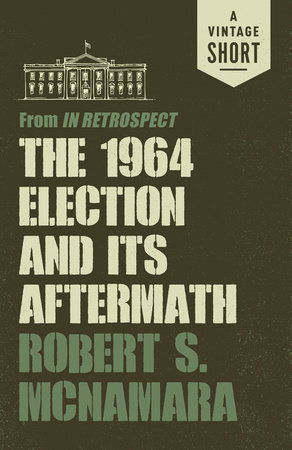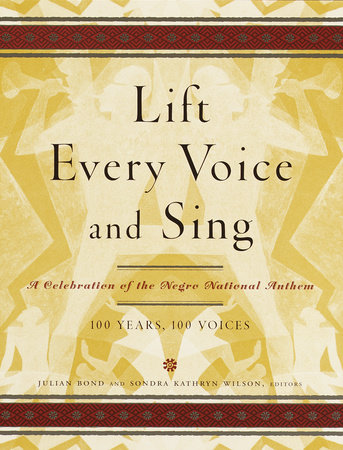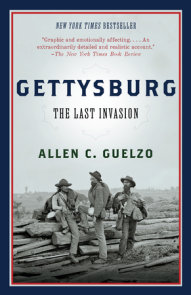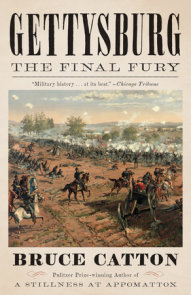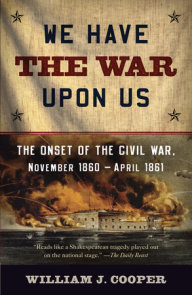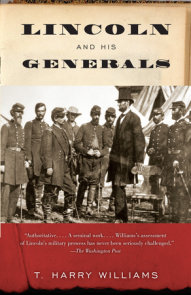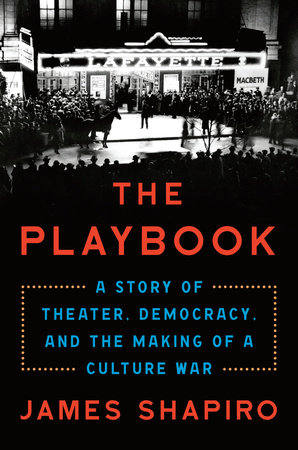Author Q&A
Q: When did you first become interested in the Civil War era?
A: When I was a child, the Civil War seemed all around me. All of my great-grandfathers had been Confederate soldiers. I grew up in Danville, Virginia, the last capital of the Confederacy; I went to Robert E. Lee grammar school and played the part of Lee in our fifth-grade pageant in Virginia. But I first thought of writing about the war when I was a young Marine lieutenant, studying tactics by walking the battlefields of the war. After visiting Chancellorsville, one of the most dramatic battles ever, I said to myself that some day I would write about it. Years later, when I decided to leave the newspaper business, Chancellorsville floated to the top of my long list of one-of-these-days projects. I did it, it had a certain success, and since then one thing has led to another.
Q: Tell us a little about how Washington, DC was different before the Civil War.
A: For seventy years after its founding, Washington was very much a work in progress. Its first important government buildings, the White House and the Capitol, were burned by the British in 1814, and there was serious debate over whether to rebuild or simply to move the national capital to some other city. Later other grand structures like the Post Office and the Treasury loomed over a town of low-rise hotels and rooming houses that seemed further diminished by the unpaved broad avenues laid out in L’Enfant’s original plan. It was a slave city, where the "black code" of surrounding Maryland decreed how and when persons of color—slave or free—could assemble, worship, race horses, swim in the Potomac, or walk abroad after 10 p.m. It was not yet the seat of a forceful central government, but the gathering place for legislators from states with lingering notions of their own sovereignty.
Q: Given its provincial history, it’s quite amazing that Washington had such a radical turnaround. What do you feel had the biggest impact on this change?
A: Simply stated, the war changed all that. The influx of soldiers, dependents, refugees, salesmen, clerks, lobbyists and hangers-on multiplied the city’s 1860 population of only 75,000, including Georgetown, which was then an independent town within the District of Columbia. The continuing construction of the Capitol dome, despite the war’s demands for money and labor, symbolized both the determination of the Union to press on and the rise of Washington in the eyes of the world.
Q: Please talk about some of the characters who helped bring Washington to life. Why did you decide to touch upon their lives and influence?
A: There are many intriguing characters through whom I tell the story of Washington at war. I could have done a fatter book filled with statistics and sociological jargon, but I feel that to be readable, history must be written in human terms, through the eyes and often the words of those who lived it. That’s particularly true of a subject like this one, spreading across the military, political, social and cultural scenes. To bring Washington alive, I sought out unfamiliar but deeply involved characters like the Capitol architect Thomas Walter; the passionate journalist and crusader Jane Grey Swisshelm, and the hotel keeper Joseph Willard and his inamorata, the accused Confederate spy Antonia Ford. They give the story individual juices, making clear that Washington was a bustling Vanity Fair of all kinds of humanity.
Q: At the core of it all was Abraham Lincoln, running a country as well as a war. In doing your research, were you surprised with any of the decisions he made during his presidency?
A: The basic decisions by Lincoln, our greatest president, are known even by schoolchildren. So are the largeness of his heart and the eloquence of his prose. On studying him in depth, you realize the complexity of his mind, the subtlety of his political tactics, the way he was willing to take half-steps, even steps back, to get to where he was eventually going. He is such a sychologically rich and well-documented figure it’s no wonder that many historians have evoted their whole careers to exploring his life.
Q: The abolition of slavery was one of Lincoln’s greatest achievements. He, in fact used his war power to make emancipation a military necessity. Do you think he would have had the same amount of success on this major historical proclamation if it weren’t for the war?
A: Of course emancipation would have come eventually without Lincoln and without the war, but it’s hard to say how long it would have taken before the nation ended slavery and erased this greatest stain upon our history. Indeed, we can never erase it. Lincoln himself said that the decision to go ahead with emancipation was dictated by events-that the South had brought on the end of its "peculiar institution" by resorting to war. When the revered black crusader Sojourner Truth visited him at the White House, he pointed toward Virginia and admitted to her, "If the people over the river had behaved themselves, I could not have done what I have done…."
Q: Since this is an election year, do you think there are there any lessons of leadership our candidates should take from Lincoln?
A: Lincoln operated so far above the bumper-sticker cliches and slimy TV commercials that dominate today’s campaigns that it’s almost sacrilegious to make a comparison. That’s not to say he was above playing muscular politics; he did. But he had a range of vision and indeed a cause that give a certain retrospective nobility to even his most calculated moves. None of today’s candidates, nor any other politician in our history, has had Lincoln’s inborn genius with words. He did not have a powerful voice, and how he would have fared in the era of television is uncertain. I suspect his sincerity and eloquence would have come across in a powerful way. But what he said in his time, and the way he said it, forever transformed the nation and the world.
Q: As a historian, are there times when you get tired of your topic of choice? Are there other time periods in American history that are also of interest to you?
A: It’s hard to imagine getting tired of the Civil War, which is not only the most important turning point in American history but is so thoroughly documented-in official records as well as in tens of thousands of personal letters and diaries. It’s amazing that there is always something new about the war, some previously unexplored character or some newly discovered document that changes the way we look at familiar people and issues. But I must say that my interests range well beyond the Civil War. I started my working life as a general assignment reporter—something different every day—and still think of that as the most fun I ever had. I was a child during the New Deal and World War II, and the two long-running stories of my newspaper career were the cold war abroad and the struggle for civil rights at home. All of these fields continue to fascinate me.
Q: How long did it take you to complete this book? Where did you do your research?
A: This one took about five years, which is a bit longer than my average. Pulling together the quantity of material that I collected from so many different fields is a more complex job than writing a linear description of a battle or a political campaign. Yet it’s the narrative, the drama of the Union fighting for survival, that drives this story. My research took me to historical societies and university libraries all over, particularly up and down the East Coast. But Washington itself is the prime center for research on all American history-the Library of Congress; the National Archives; the Smithsonian; the historical offices of the House, the Senate, the armed forces and the government departments; the Architect of the Capitol; the Historical Society of Washington. For the first time, I also used the internet, which is a valuable research tool if approached with your guard up.
Q: Are you working on a new book?
A: I’m in the throes of deciding on my next project; it may or may not be another Civil War book. This time I may do a good rich biography, what I call a vertical project, a more closely focused research and writing effort. That would be a change of pace from doing another broad, horizontal subject, full of different wonderful characters, like this one about Washington.
